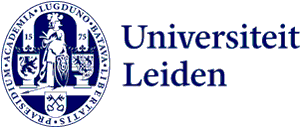
Treating military matters as military science - a lecture on Russian military concepts from 1853 to the present day
Recently, Engin Yüksel gave a lecture on Russian military concepts from 1853 to the present day and his observations on the Russo-Ukrainian war at the Faculty of Humanities, premised on his recently completed doctoral research.
The lecture was geared towards instructing students of international relations on the military conceptual dimensions of Russia’s contemporary strategy, with particular reference to Russia’s invasion of Ukraine. The lecture was organized by Dr. Lukas Milevski, lecturer in the MA Global Conflict in the modern Era.
Russian military and strategic concepts
During the lecture’s first half, Engin discussed the historical development of five major Russian military concepts: the initial period of war, combat readiness, forecasting, the correlation of forms and methods, and reflexive control. Engin traced their varied conceptual developments and changing contexts from the late 19th and early 20th centuries to the present day. Over the course of Russian military history, these concepts emerged, evolved, and ultimately formed a coherent system of military analysis which remains in use. This system in turn combines with other Russian strategic concepts, such as new-generation warfare, to inform analysis and war planning.
Intellectual toolkit
In the process, Engin demonstrated a significant degree of continuity throughout the history of modern Russian military thought due to the five concepts’ (1) enduring strategic relevance and (2) integration into the system of conceptual thinking. A correct understanding of the content of these fundamental military concepts can help academics and practitioners better comprehend the peculiarity of the Russian conceptualization of modern warfare. This is the intellectual toolkit which underpins Russian military operations in and against Ukraine.
Four case studies
This was followed in the second half by discussion of four case studies examining the relevance of these concepts to Russia's military and strategic behavior in its on-going invasion of Ukraine. Engin presented how Russia’s conduct of operations in Ukraine has reflected the continuing relevance and direct applicability of their fundamental military concepts. His case studies included the correlation of military and non-military means in Russian strategy, the periodization of the Russo-Ukrainian war with a focus on initial period of war and combat readiness, and elements of reflexive control in Russia’s repeating invocation of nuclear threats.
As the confirmation of Engin’s findings, the Russian military aimed to win the Russo-Ukrainian war in its initial phase (February-March 2022); however, this plan failed due to total ignorance on the conditions of war such as the resilience of the Ukrainian nation and the resolute Western assistance. Representing the continuity, the Russian strategy of attaining an easy victory with permanent readiness troops put Russian leadership in a difficult position. Nevertheless, the follow-up partial mobilization in October 2022 has not yet achieved expected results, earning war a protracted character.
Discussing Russian military thought
During the Q&A, the discussion focused on the reasons why Russian military thought is influenced by positivism, overreliance on and preoccupation with the historic (as the Russians say war-winning) concepts and principles to win any war. The Russian General Staff treated military matters as military science, instead of as operational art. Therefore, Russian military concepts reflect their particular positivistic/scientific approach to military theory while in the West, the military theory has been predominantly shaped by the judgement of commander/politician and the assessment of the conditions of war.
Interested in our MA programmes in International Relations? Find out more about our specialisations!
